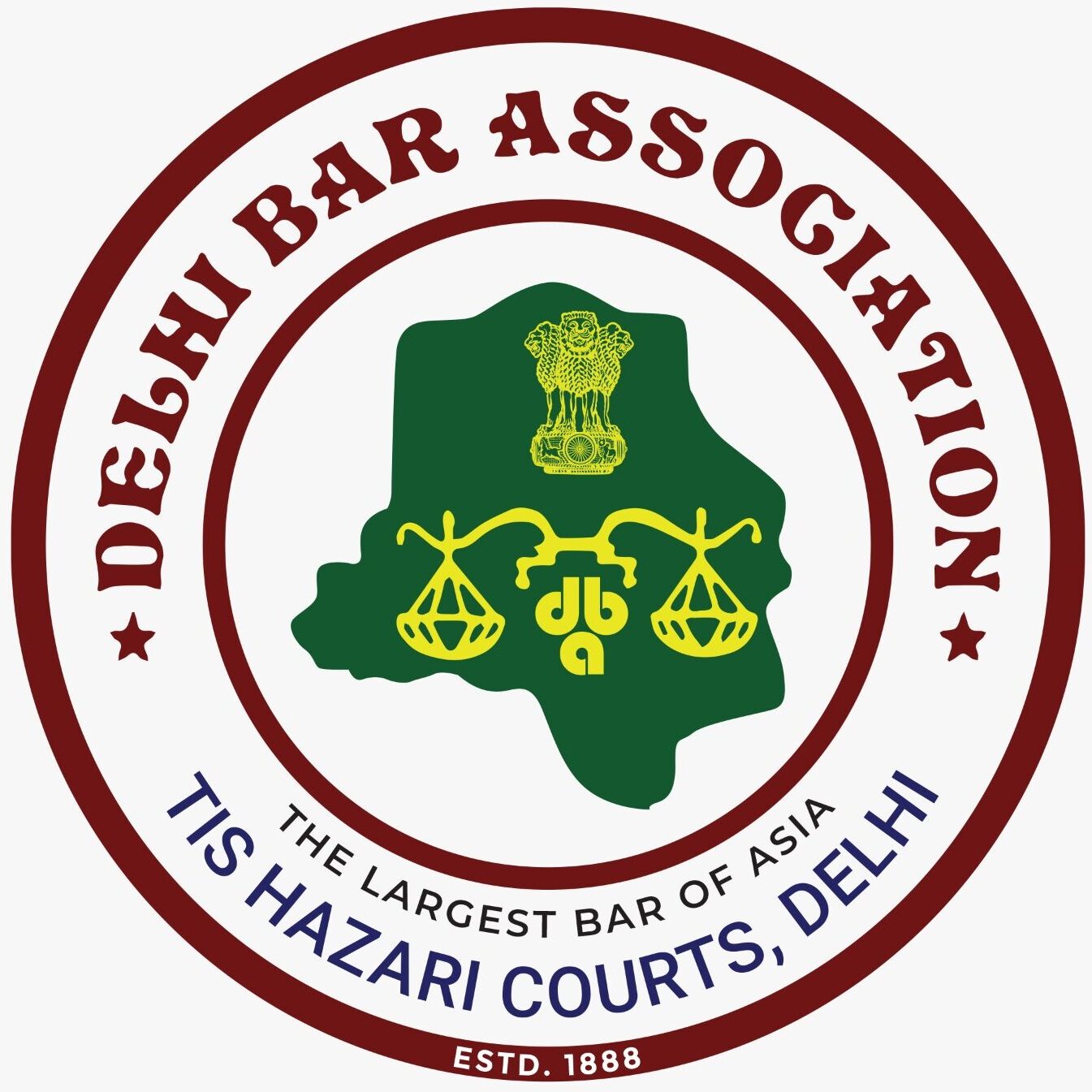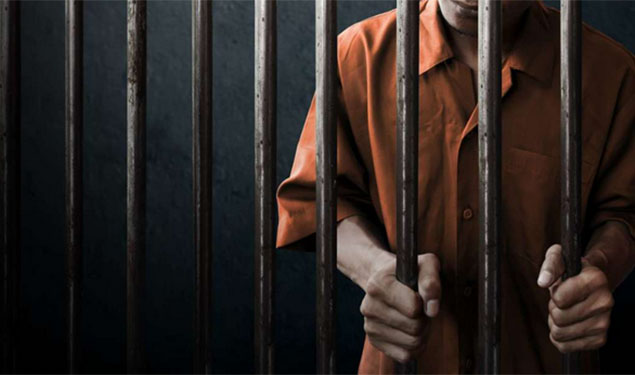Human rights are envisioned by democracies as one of the fundamental principles for individual advancement in society. Human rights can be defined simply as those basic rights to which every man and woman, no matter where they reside in the world, are entitled by virtue of being born as human beings. Human rights are those freedoms that all people have, regardless of their caste, religion, sex, race, or country of birth. Anyone who is under investigation, suspected, under trial prisoner, or convicted also has rights. These rights are meant to protect them from unfair and humiliating treatment.
An accused person who is held in judicial custody is known as an undertrial prisoner. In court, their case is currently being heard. There is a well-known proverb that says, “Accused is presumed innocent until proven guilty.” A person does not automatically forfeit all of his fundamental human rights just because he is detained or accused of a crime. Prisoners under trial are in judicial custody, not police custody. An individual held by the police will be kept in their physical custody at the police station. They will be in jail under the magistrate’s custody under judicial custody.
Under-trial inmates are one of the prison population subgroups that have been identified as key contributors to jail overcrowding. Sixty-seven percent of those detained in Indian prisons are awaiting trial, meaning they have not yet been found guilty of a crime but are still being heard by a judge. The majority of prisoners awaiting trial come from lower socioeconomic classes with rural and agricultural ancestries. Because these people lack the resources and knowledge necessary to effectively advocate for themselves, many of them are still behind bars only because they are unable to pay bail.
In contrast, the Indian legal system recognizes the human rights of those awaiting trial. Articles 21 and 39A of the Indian Constitution specify these, providing opportunities to obtain justice. It was decided that in the case of the State Of Andhra Pradesh vs Challa Ramkrishna Reddy, the prisoners are also people and will not lose their fundamental constitutional rights. In this article, The human rights of Indian prisoners who are awaiting trial are covered in detail.
Article 3-11 of the Universal Declaration of Human Rights guarantees liberty and life, no inhuman or cruel treatment, arbitrary detention, effective judicial remedy, the presumption of innocence, and other rights, which were adopted in 1948. As a signatory to the UDHR, India is required to uphold these rights. Prisons Act of 1894 is India’s first piece of legislation governing prisons. This Act primarily focuses on prisoner reformation in relation to prisoner rights.
This contains provision of safe shelter and custody, their treatment, the provision related to parole or short-term release, and most important division of Prison for male and female, civil and criminal, and convicted and under-trial prisoners. In Indian prisons, those who are awaiting trial are housed in the same facility as those who have been convicted. However, the prison guards are required to provide separate accommodation for the under-trials. According to the Model Prison Manual, no convicted inmate should be housed in the same facility as inmates awaiting trial or be permitted to interact with them.
However, in practice, under-trial inmates in Indian jails are treated like convicts and housed in the same prison, constituting a grave violation of their human rights. Therefore, the Prisoners Act 1984 specifically addressed prisoners’ cruelty. Prison staff members are held accountable if any abuses are done to a prisoner. In India, There are various laws that protect the following rights of prisoners awaiting trial.
- Right to Fundamental Rights-The first and foremost rights that are enjoyed by the Undertrials during the trials are those that are guaranteed by Part III of the Indian Constitution. The most significant right is Article 14, which states that “the state shall not deny to any person within the territory of India, equality before the law or the equal protection of the laws.” Article 21 of the Indian Constitution guarantees the right to life and personal liberty and states that no one shall be deprived of these rights unless doing so in accordance with legal procedures. The phrase “right to live” now includes the right to live with dignity as part of its scope, expanding upon the original meaning of Article 21. They have also protection under Article 20. According to Clause (1) of Article 20 of the Indian Constitution, “No person shall be convicted of any offense except for violation of a law in force at the time of the commission of the act charged as an offense, nor be subjected to a penalty greater than that which may have been imposed under the law in force at the time of the commission of the offense.” And No person accused of a crime may be forced to testify against themselves, according to Article 20’s clause (3). Moreover, their friend or family members should be made aware of their arrest, and they should be given the option to visit the prisoner.
- Right to Speedy and Fair Trial– Delay in justice is justice denied. This is especially true in criminal cases where the accused is not released on bail while the case is pending and the trial is excessively delayed. Article 21 of the Constitution implicitly recognizes the right to a speedy trial as a fundamental right for prisoners. It guarantees a just, equitable, and reasonable process. If a trial is deemed unfair, it will typically be restarted or the ruling will be overruled.
- Right to Bail– Section 436 of the Code of Criminal Procedure, 1973, which provides for the right to bail, is another significant privilege enjoyed by the undertrial. “To set at liberty a person arrested or imprisoned, on security being taken for his appearance on a day at a certain place, in order that he may be safely protected from prison,” is what bail means. “The party arrested or imprisoned is delivered into the hands of those who laid themselves or become bail for his due appearance when required.” According to Criminal Procedure Code Section 437(6), the accused must be released on bail if the trial is not finished within 60 days of the first date set for hearing while he is still in custody.
- Right to Consult and to be Defended by a Legal Practitioner– It is one of the basic rights protected by our Constitution. No person who is arrested shall be denied the right to consult with and be represented by counsel of his choice, according to Article 22(1) of the Constitution. The right of the accused to choose his own attorney is fundamental and necessary for a fair trial. The right is acknowledged due to the obvious fact that, in most cases, an accused person lacks the legal knowledge and professional skills necessary to successfully defend himself in court against a well-qualified and experienced prosecutor. This also applies to the right to free legal assistance guaranteed by Article 39A of the Indian Constitution.
- Right to Free Legal Aid– Legal aid is the practice of providing free legal representation to those in society who are less fortunate and cannot afford to hire an attorney to represent them in court or other legal proceedings before judicial authorities or tribunals. Equal Justice and Free Legal Aid are provided by Article 39A. In order to ensure that no citizen is denied the opportunity to pursue justice due to financial or other limitations, the State must ensure that the functioning of the legal system promotes justice based on equal opportunity. In particular, the State must provide free legal aid through appropriate legislation or programs or in any other manner.
- Right to Know the Grounds of Arrest– According to Article 22 (1) of the Constitution, a person arrested for an offense under ordinary law must be informed of the reason for their arrest as soon as possible. The same is also covered by Section 50 of the Criminal Procedure Code, in addition to the constitutional provision.
- Right to be Examined by a Medical Practitioner– Examining by a medical officer an arrested person is another significant privilege enjoyed by an undertrial. Section 54 of The Code of Criminal Procedure, 1973, provides for this right.
- Right against Inhuman Treatment– They are entitled to protection from inhumane treatment. They have the right to be free from torture and other inhumane treatment. To that end, unless legitimate justifications can be offered, they are not permitted to be handcuffed while being transported from prison to court. Handcuffing is unjust, excessively harsh, and arbitrary. It has been determined that it is unjustified and in violation of section 21. The court ordered the Union of India to issue appropriate guidelines in this regard.
- Right to get Compensation for Wrongful Arrest– The court may order someone to make compensation for damages to another person after that person was wrongfully detained by a police officer under Section 358 of the Criminal Procedure Code.
- Right of Appeal– If the outcome of the trial results in his conviction, the undertrial is entitled to this right. The Code of Criminal Procedure, 1973, Sections 378-392, contains provisions relating to appeal.
Conclusion:
In India, we can observe that a number of initiatives have been taken to transform prison facilities into correctional facilities and to equally advance the rights of the nation’s prisoners. The treatment of prisoners awaiting trial is still not satisfactory today, though. The rights of prisoners who are awaiting trial are frequently violated. All of the rights guaranteed by the Indian Constitution and other laws, such as the Code of Criminal Procedure, 1973, should be respected by the state and the judiciary.


Hello Sir.
Your article have covered all the basic point which is a tremendous work. In a very easy and systematic manner you have explained every details of it. I am sure you will keep sharing more articles.
Thank you so much brother. Definitely I’ll keep posting more articles on a regular basis. In fact, I have already posted two new articles. Go ahead and read them too.
It is very helpful for knowledge and legal challenges. We are proud of you that we have advocates like you who help people’s with their knowledge and make us aware of the legal system.
thank you.